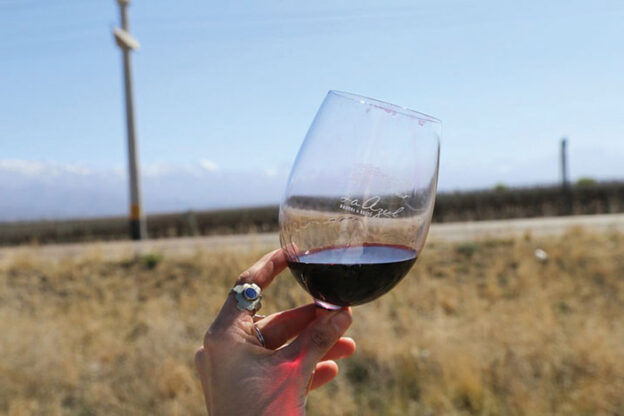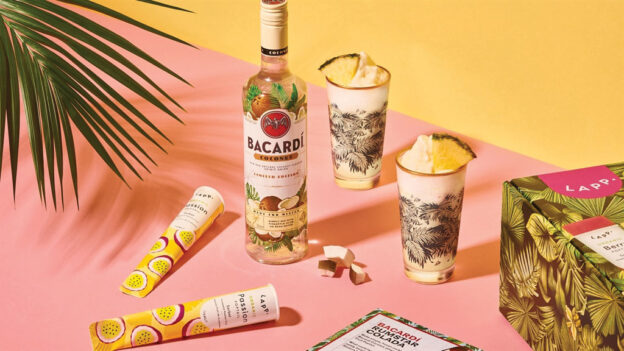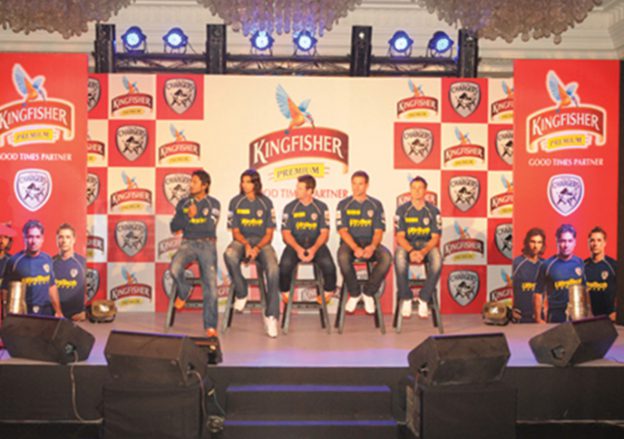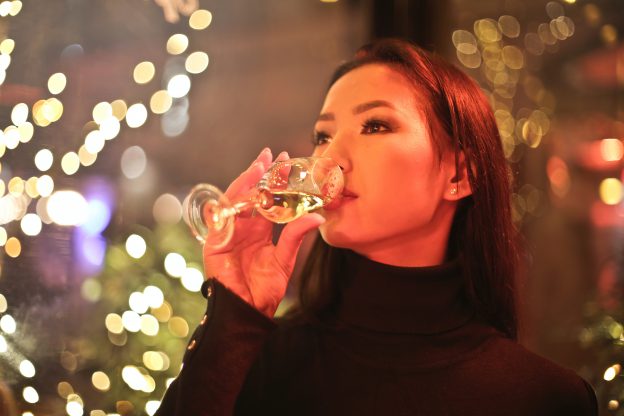While drinking at night is very popular, day drinking during Covid times has also gained traction. There are a huge variety of day drinking destinations and beverage options around the world, from public parks in South Korea to cozy bars in Belgium to the beaches of Brazil. We look at some of the best drinking destinations in alphabetical order, first by country and then by city.
Mendoza, Argentina is ideal for day drinking
The entire Mendoza wine region is designed for day drinking, with its affordable wine tastings, winery lunches with wine pairings and beautiful weather year-round. But the creme de la creme of Mendoza winery lunches is the five-course lunch with (bottomless!) wine pairings at Bodega la Azul in the Uco Valley.
Yerevan, Armenia
The best things to do in Yerevan, Armenia, is drink wine. Saryan Street is the city’s “wine street”, famous for its Karas Wine. A great atmosphere for getting work done while enjoying a glass of wine or two.
Maffra, Australia
On a sunny day, both locals and visitors love to do some weekend day drinking by meeting up with friends, sitting around and trying some of Blue Gables’ amazing wines. There is nothing better than sipping from a chilled bottle of Moscato wine, sharing a wood-fired pizza and relaxing in this chilled-out environment.
Melbourne, Australia
There is no better way to spend a sunny day drinking in Melbourne, Australia than sipping prosecco outside at one of Melbourne’s many famous bars.Light, bubbly and refreshing, prosecco is the perfect drink to linger over as you relax in the sun.In recent years, Australian producers have mastered the art of Italian prosecco and you can find their drops all over town. The Australian proseccos come from the King Valley region, produced by Italian migrant families Dal Zotto and Pizzini. A seat at Arbory Bar on the Yarra River, next to Flinders Street station, offers a change of scenery and a unique venue in the middle of the river. Ponyfish Island is where your prosecco adventures in Melbourne continue in the shade of the Southbank bridge. It’s the kind of quintessential hidden bar that Melbourne is known for.
Sydney, Australia
The Bondi area in Sydney, Australia is the perfect place to day drink among other cheerful day drinkers. This is mainly due to the Bondi beach and Bondi Junction areas being popular with backpackers who don’t need much of an occasion to get their party on. It’s a popular pastime for the working holiday-makers in Sydney, who often start day drinking after an early finish on a Friday. This can continue throughout the weekend and culminates in the Sunday session which starts sometime on Sunday morning and ends when the pub closes.Most pubs in the area open early and have a very casual feel so you needn’t get dolled up for day drinking session.The ideal day drink in Bondi is beer and wine is also perfectly acceptable for those of us who can go the day-drinking distance on the vino.
Brussels, Belgium
A mere 20 minutes from the bustle of Brussels’ Grand Place, you’ll find the commune of Saint Gilles. Described by its mayor as the place where the world comes to meet, it’s an opportunity to see the real Brussels, Belgium. Here, alongside fabulous Art Nouveau buildings by the architect Victor Horta, you’ll find life lived among friends and family. You’ll find that life plays out both around you and with you in the bars of Saint Gilles.If you’re a fan of Belgian beer, then there are plenty of choices to sit back and enjoy day drinking in Brussels with a favourite brew. One popular venue is Union and Egalite which keeps more than 90 beers in a long bar studded with chandeliers. Make a day drinking date with a glass of the splendid Orval, and feel the sheer pleasure of being in Brussels.
Rio de Janeiro, Brazil
Without a doubt, the favourite location for a spot of day drinking is Copacabana Beach in Rio de Janeiro.Either way, Copacabana Beach is awesome at all times of the year. And the drink of choice is Caipirinha. This is the most famous cocktail anywhere in Brazil. It is made from a spirit called cachaça, which comes from sugar cane. The cocktail is very simple to make: simply crush ice, lime juice and brown sugar, and then mix in some of the cachaça.Capirinhas are incredibly refreshing and very, very cheap to get anywhere in Brazil, making them perfect for day drinking in the hot sun.
Calgary, Canada
Although it’s not your typical cocktail, any good Canadian will tell you there is nothing like a Caesar to kickstart your day drinking session. Caesar is its birthplace, Calgary, Alberta.Think of a Caesar as the spicy, wilder cousin of a Bloody Mary – vodka, hot sauce, Worcestershire sauce, and Clamato juice (yes, that’s clam and tomato juice!), served with a celery salted rim and typically topped with delicious garnishes such as pickled beans, asparagus or olives. But don’t let the clam juice throw you off! This cocktail is super popular across Canada.
Ontario, Canada
For a day of activity visit Prince Edward County, Ontario, for a craft brewery tour by bicycle. The County lies a few hours outside of Toronto, and is an increasingly popular craft beer hub for locals and tourists alike.Prince Edward County (PEC) is farmland-turned-wine and beer region with a vibrant art scene and food that compliments it. As the day wears on, try Grandpa’s Coffee Stout at Parson’s as you relax in oversized Muskoka chairs. If you like sour beers, 555 Brewery is for you with its Jail Cell Sour Series. Their pizzas are delicious.Finally, end your day of beer and biking at Sandbanks Provincial Park in PEC. Here you’ll find Ontario’s white sand beaches lining some of the clearest freshwater in the world. It’s the perfect place to have a campfire and toast some marshmallows, and maybe enjoy a couple more evening brews as you relax beneath the stars.
Havana, Cuba
Havana, Cuba is known for its nightlife, but the truth is Cubans also love to drink rum during the day. Most tourists spend their time in Old Havana, which is a gorgeous and home to several bars claiming that Hemingway once drank there, but the more modern side of Havana, is where the locals go drinking.A good spot for day drinking in Havana is Playa del Estes, just outside of the city center. This beach is where locals visit on weekends. For a cocktail in Havana try 403 O’Reilly in Old Havana, a popular gin bar that also has other mixed drinks.
Český Krumlov, Czech Republic
Czech Republic is known for its beers. Český Krumlov is also filled with wonderful locations for an afternoon glass of local wine. The veranda at Papa’s Restaurant is ideal for a little picnic beside the Vltava River in the shadow of Krumlov Castle and indulge in some day drinking as you watch the kayakers pass by.
Épernay, France
Épernay is a great destination for champagne lovers. In fact, Épernay is the capital of the Champagne area! It is in Épernay where the most famous champagne brands like Moët Chandon and Mercier have their headquarters and vineyards, but there are also other independent champagne makers with interesting proposals.The champagne is produced in a very limited area, with very specific kind of grapes and a very specific process. Any drink produced out of this area or without following these rules cannot be called champagne; that’s why the champagne is so exclusive!Épernay is well connected by train, which makes of Épernay an excellent day drinking day trip from Paris or Reims.
Berlin, Germany
Beer is German’s drink of choice. Berlin, Germany is to join the locals for a frosty glass of cold beer, preferably at a sidewalk picnic table or another busy location that lends itself to people watching and meeting new travel friends.
Munich, Germany
Munich’s annual Oktoberfest festival is one of the best places in the world for some serious day drinking and a great party atmosphere.
Dublin, Ireland
O’Donoghue’s Bar is a historically significant drinking place located 15 Merrion Row in Dublin, Ireland. It is a popular pub that has attracted tourists from all over the world for over 50 years. O’Donoghue’s is known for its amazing, live, traditional Irish music, and it’s the place that introduced the popular band The Dubliners in 1960s. The bar is also frequented by other world renowned Irish traditional music bands and artists, whose pictures are displayed inside the pub.Considered to be one of the most authentic Irish pubs in the country, this bar does not only offer good entertainment, but also good drinks. A popular day drinking pub as well, O’Donoghue’s Bar is open from 10 am to midnight daily. There’s no better place to experience Ireland in an authentic way other than to gobble down a pint or two of Guinness while listening to traditional Irish songs.
Verona, Italy
Dining al fresco in the town square, dressed to the nines, wearing designer shades and sipping a great cocktail might seem like the ways of the rich and famous, but any Italian tourist can enjoy this day drinking tradition!Walk along the rim of Piazza Bra in the heart of Verona, Italy to see cafes filled with locals and visitor alike. Mid-day they might be enjoying antipasti, formaggio, or a late lunch, but in their glasses, many will sport the blood orange aperitif very popular in this region, an Aperol.Nicknamed “Ape” by the locals, this liquor can be served on the rocks, or more commonly in an Aperol Spritz – a combo of Aperol, Prosecco, soda and an orange slice. However you serve it, this drink is meant to be enjoyed during happy hour, to open your palate for the evening meal to come!
Negril, Jamaica
When you are in Jamaica you will always hear people say “give me a Red Stripe” when they are at the beach bar. They are referring to Red Stripe beer, the most popular beer brand in Jamaica.Negril Beach is a few miles of white sand beach dotted by hotels and the quintessential beach bars. You can basically work your way down the beach, stopping at the various beach bars to enjoy a Red Stripe beer or a rum. The beach bars are also a great place to people watch, enjoy the vibes and make new friends. At the end of your day drinking, you’ll get to watch the famous Negril sunset.
Maldives
Day drinking cannot get any better than on an exotic island resort in the Maldives. The Paradise Island Resort, otherwise known as Lankanfilnolhu in the north atoll in the Maldives, is a pristine white sand luxury resort island best for strolling around… with vodka, of course!The Maldives is a tropical country and it gets pretty humid during the daytime, so the best way to beat the heat is by sipping a coconut vodka cocktail. The extremely refreshing coconut vodka is served at the Hulhangu bar, a sea-facing bar at the Paradise Island Resort. To give it a more exotic touch, the drink is served in a traditional Maldivian coconut. The refreshing flavour of the coconut, mixed with vodka and topped with lemon and mint leaves, is the ideal beverage to drink on a sunny afternoon at the beach.Hydrating and refreshing, sipping a coconut vodka cocktail at the Hulhangu bar’s seafront porch is something that everyone should have the good fortune to experience.
Mexico City, Mexico
Xochimilco in Mexico City is a series of canals that wind around chinampas, or artificially created islands with small farms, sometimes referred to as ‘floating gardens’. Bright, gondola-like boats crowd the canals, manoeuvred by a driver with a long pole. A boat can fit up to 20 people, and you can rent one by the hour. Smaller boats weave around the bigger ones, selling all kinds of snacks and beverages.Michelada is a Mexican beer cocktail. A litre-sized soda cup is filled with lime juice and Dos Equis beer, then the rim is smeared with spicy Mexican tamarindo candy and chili powder.Mexican Tequilas too are world famous. Mezcal is a Mexican spirit made from agave. Tequila is technically a type of mezcal, but while tequila is only made from one type of agave plant (blue agave), mezcal can be made from 28 types of agave, including blue agave.
Amsterdam, Netherlands
One of the best places to enjoy a day of relaxing day drinking is in Amsterdam. It’s actually acceptable in the Netherlands to sit on a lovely cafe balcony and sip on a beer in the afternoon while you people watch and chat with friends. Luckily, you don’t need to only drink Heineken. There are lots of great cafes and beers to choose from. A favourite spot in Amsterdam is Brouwerij ’t IJ. This craft brewery in Amsterdam (next to a windmill!) is open all afternoon and closes early in the evening, so you actually need to get started early if you intend to sample their fantastic beers. Otherwise, you can head up to Amsterdam Noord to sample beers from the Oedipus, another great craft brewery.
Marlborough, New Zealand
The New Zealand wine region of Marlborough is superb area in which to day drink your way through a series of amazing wineries. You can easily rent a bicycle and cycle through ten wineries in a small area… or you can hire a driver and make it a heck of a lot easier. Whichever way you decide to go, Marlborough is a great wine region where Sauvignon Blanc dominates, but smaller grapes will win your taste buds.Here in Marlborough you’ll find small boutique wineries like Gibson Bridge Winery and the up-and-coming Wairau Cove, alongside internationally known Cloudy Bay, and if you want a beer at the end of the day, there’s always the craft brewery, MOA!
El Nido, Philippines
When considering the best places in the world for day drinking you’d be amiss to exclude El Nido in the Philippines from your list. El Nido is an eco-tourism hotspot with beaches are to die for and (very importantly!) the booze is cheap!When you’re sitting on the beach, being served chilled, fresh coconuts filled with generous amounts of Filipino Don Papa rum is the best experience.
Krakow, Poland
Hot mulled wine is quite popular in many places, but have you heard of hot beer? “Hot” and “beer” are two words that one wouldn’t normally associate together, but hot beer is actually is an interesting beverage and if you are visiting Poland, you must try it.Hot beer is served in most bars all over Poland. However, the bars in Krakow are especially popular.Wrega Pub is located in the Kazimierz area of Krakow, making it an ideal place to enjoy some day drinking after a spot of sightseeing.
Lisbon, Portugal
Ginjinha is a liqueur synonymous with Lisbon, Portugal. Made from Ginja or Morello cherries, sugar and fortified wine, it is the go-to drink for locals and visitors alike, and any visit to Lisbon would be complete without sampling at least one Ginjinha in Lisbon.The famous cherry liqueur was drunk by the late Anthony Bourdain when he filmed his television show, No Reservations, in Lisbon. Apparently, he enjoyed a number of glasses of Ginjinha with the locals.Porto’s most famous tipple is undoubtedly port wine. This sweet, fortified wine originates a few hundred kilometres upstream in the Portugal’s Douro Valley, but thankfully you don’t need to go far to start enjoying it. The cellars in Vila Nova de Gaia, just across the river from Porto, have been storing oak barrels of port wine for centuries.
South Africa
Wine tasting is a great excuse for day drinking, and it allows you to sample delicious wines in beautiful settings.Visiting South Africa’s Cape Winelands is the perfect excuse to start day drinking delicious wines early in the morning.
Soju in South Korea
South Korea is by far one of the best day drinking destinations in the world. South Korea is actually the country that consumes the most alcohol in the entire world, because of their great love for soju, a traditional Korean spirit. You will find day drinking to be a common activity among the locals. Most convenience stores have tables and chairs set up outside for people to enjoy their snacks, beer and soju any time of the day or night.
Girona, Spain
There is one form of day drinking that is perfectly acceptable throughout the Catalan province of Spain – taking a vermouth.Vermouth is a big deal in Catalonia, with Vermouth bars opening around 11:00 am, and closing around 3:00 or 4:00 pm. Vermouth is a fortified wine, served over ice, with a lemon slice and often an olive stuffed with anchovies on the rim. It is best enjoyed with a few little tapas, including a tortilla espanola, olives or anchovies.The best place for vermouth in Catalonia is in Girona, in the Costa Brava.
Malmo, Sweden
Winters in Sweden are a challenge. Enter Akvavit, or Aquavit, to the rescue. Aquavit is an alcohol that has been used to warm the Scandinavian body, mind, and spirit since the 15th century.Akvavit is distilled from grain and potatoes, and is flavoured with herbs and spices. It has a distinct flavour that admittedly has to grow on you. But once it does, yippee, as it provides a nice warm feeling to ward off the early darkness and short winter days.Not for the faint of heart, Aquavit is 40% alcohol by volume, or 80 proof by US standards. It will kick your butt and take you prisoner if you have too much.Still, Aquavit is such an important part of Scandinavian culture that it is used to toast weddings, graduations and Christmas dinners. Typically served as shot, it is consumed after singing a song, called a snapsvisa or a “schnapps song”.
Bangkok, Thailand
Bangkok, Thailand is good for many things – seeing all the temples, eating your body weight in pad Thai and spending the day in the sun with a Chang beer. And if you’re going to do this, there’s only one place to do it right: Khao San Road.
New Orleans, USA
While you can find daiquiris and Irish coffees anywhere, only the Tropical Isle Bar in the French Quarter sells Hand Grenades. The recipe for the Hand Grenade originated here in the late 1980s and is patented by its owners. The drink is frozen and sugary sweet, with a melon flavour, and it is served in a tall green container shaped like a hand grenade. This is all perfect to mask what it actually contains – vodka, rum, gin, grain alcohol, and melon liqueur!The Tropical Isle Bar even has its own mascot for the Hand Grenade and over a million drinks are sold every year!
San Juan, Puerto Rico, USA
When it comes to day drinking piña coladas, there is no better place to enjoy the pineapple, coconut and rum concoction than Barrachina in San Juan, Puerto Rico. Barrachina, a restaurant nestled in the heart of Old San Juan, claims to have been the birthplace of the piña colada in 1963. Be advised though, there is disagreement that the piña colada originated a few years prior at the Caribe Hilton.
Santa Ynez, California, USA
The Santa Ynez Valley in southern California, USA, is a fantastic place for drinking! The Santa Ynez Valley is a wonderful part of the world where the sun shines warmly for much of the year and winters are mild. The rolling hills are covered in vineyards and horse ranches. The quiet roads curl around between fields and buildings.This region is also renowned for its chardonnay and pinot noir grapes, and is home to around 120 wineries. Many of these California wineries open their doors to people who want to come and indulge in some wine tasting.
Sonoma County, USA
Wine is life in Northern California. The north part of the state is known for its vast range of wineries, wine makers and wine culture.Sonoma County is one of the spots that you can’t miss. If you are looking for a day of great wine, day drinking and some beautiful scenery, Sonoma County is the place to go. It is a short twenty-minute drive from the Santa Rosa Airport or roughly two hours from San Francisco International Airport. Bourbons, Tennessee whiskies are also popular in US bars.In India, Goa and Pondicherry are also ideal locales for drinking. Feni is a popular tipple of Goa. Mumbai, Delhi, Bangalore are big markets. Hyderabad, Chandigarh, Jaipur, Kolkata and Nashik are other popular cities for drinking.




